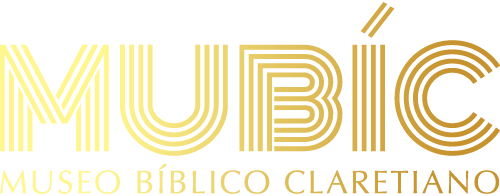



Foro
About Me
Your intestine health performs a pivotal role in your total well-being, impacting everything from digestion to mental clarity. The gut, often referred to because the "second brain," houses trillions of microorganisms that form your intestine microbiome. When balanced, these micro organism support essential capabilities like digestion, immune regulation, and even temper stabilization. Nevertheless, when the intestine falls out of balance, known as dysbiosis, it can lead to a variety of health issues. Listed below are some signs of poor gut health and what you can do to heal it.
Signs of Poor Intestine Health
1. Digestive Issues
One of the frequent signs of poor intestine health is chronic digestive problems. Bloating, gas, constipation, diarrhea, or heartburn are all indicators that your intestine could also be out of balance. These symptoms occur when the great and bad micro organism in your intestine are imbalanced, making digestion less efficient and leading to discomfort. Persistent digestive problems may signal more critical underlying issues equivalent to irritable bowel syndrome (IBS) or small intestinal bacterial overgrowth (SIBO).
2. Meals Intolerances
If you find yourself immediately illiberal to certain foods, your intestine health may very well be to blame. Unlike meals allergic reactions, which involve an immune response, food intolerances occur when your gut has problem digesting certain foods. This often results from a damaged intestine lining, which can cause symptoms like bloating, nausea, and belly pain after consuming specific foods. Lactose, gluten, and FODMAPs (fermentable carbohydrates) are widespread triggers.
3. Unexplained Weight Fluctuations
Sudden and unexplained weight achieve or loss can be a sign of poor gut health. Dysbiosis can have an effect on how your body absorbs vitamins, regulates blood sugar, and stores fat. A gut imbalance might lead to overeating due to cravings for sugar and processed foods, which fuel bad bacteria in your gut. Then again, some individuals experience weight loss as their intestine fails to absorb essential vitamins properly.
4. Skin Conditions
There's a close connection between the gut and the skin, known because the intestine-skin axis. Poor gut health can manifest in skin issues like acne, eczema, psoriasis, or rosacea. When your intestine is inflamed or imbalanced, it can set off an inflammatory response throughout the body, including the skin. This is why conditions like acne and eczema are often linked to intestine health problems.
5. Chronic Fatigue and Sleep Disturbances
If you're always tired or affected by insomnia, your intestine health could be contributing to the problem. The intestine produces the majority of the body's serotonin, a hormone that performs a key function in regulating mood and sleep. An unhealthy intestine can lead to low levels of serotonin, which might cause sleep disturbances and chronic fatigue.
6. Temper Disorders
The intestine-brain connection is a well-established link between gut health and mental health. Poor intestine health can lead to points like anxiousness, depression, and temper swings. This is partly attributable to the truth that the gut produces neurotransmitters like serotonin and dopamine, which influence mood. In case your gut is infected or imbalanced, it can interfere with the production and regulation of these chemical compounds, leading to mood disorders.
The right way to Heal Your Gut
Healing your intestine is a process that involves each dietary and lifestyle changes. Listed below are several strategies to restore balance to your intestine microbiome and improve your overall health:
1. Adopt a Intestine-Friendly Weight loss plan
The first step in healing your gut is to adopt a food plan rich in whole foods that support intestine health. Focus on eating plenty of fiber-rich fruits, vegetables, and whole grains, which act as prebiotics to feed the good micro organism in your gut. Probiotic-rich meals, corresponding to yogurt, kefir, sauerkraut, kimchi, and kombucha, introduce helpful micro organism into your gut. Reducing your intake of sugar, processed meals, and artificial sweeteners is also essential, as these can promote the growth of harmful bacteria.
2. Manage Stress
Chronic stress is a serious contributor to poor intestine health. Stress affects the gut-brain connection and might lead to inflammation, modifications in gut motility, and a rise in bad bacteria. Incorporating stress-reducing practices like meditation, yoga, deep breathing exercises, or spending time in nature can assist to restore balance in the gut.
3. Get Enough Sleep
Sleep is essential for sustaining good intestine health. Poor sleep patterns can disrupt the gut microbiome, leading to imbalances that affect digestion and mood. Intention for 7-9 hours of quality sleep per night time to permit your intestine to rest and repair.
4. Exercise Often
Regular physical activity has been shown to promote a healthy gut microbiome by rising the diversity of good bacteria. Train may improve digestion, reduce irritation, and help keep a healthy weight. Purpose for a mix of cardio train, power training, and flexibility exercises for optimum intestine health.
5. Keep Hydrated
Drinking sufficient water is essential for digestion and sustaining the mucosal lining of the intestines. Water additionally helps to flush out toxins and harmful micro organism out of your digestive system. Aim for at the least 8 glasses of water per day to keep your intestine hydrated and functioning properly.
6. Consider Supplements
In some cases, supplements may be necessary to restore intestine health. Probiotic supplements will help reintroduce helpful micro organism into your intestine, while prebiotic supplements provide the fiber wanted to nourish these bacteria. Additionally, digestive enzymes or glutamine supplements could help repair the intestine lining and improve digestion. Nonetheless, it’s greatest to consult with a healthcare professional earlier than adding supplements to your routine.
Conclusion
Your intestine health is foundational to your general well-being, influencing everything from digestion to mood. Recognizing the signs of poor intestine health and taking steps to heal your intestine can lead to significant improvements in your physical and mental health. By adopting a intestine-friendly weight-reduction plan, managing stress, getting enough sleep, staying hydrated, and considering supplements, you may restore balance to your intestine microbiome and enjoy higher health.
Location
Occupation
Latest Post: Nuevo Testamento Our newest member: Gonzaleshakly Recent Posts Unread Posts Tags
Forum Icons: Forum contains no unread posts Forum contains unread posts
Topic Icons: Not Replied Replied Active Hot Sticky Unapproved Solved Private Closed


